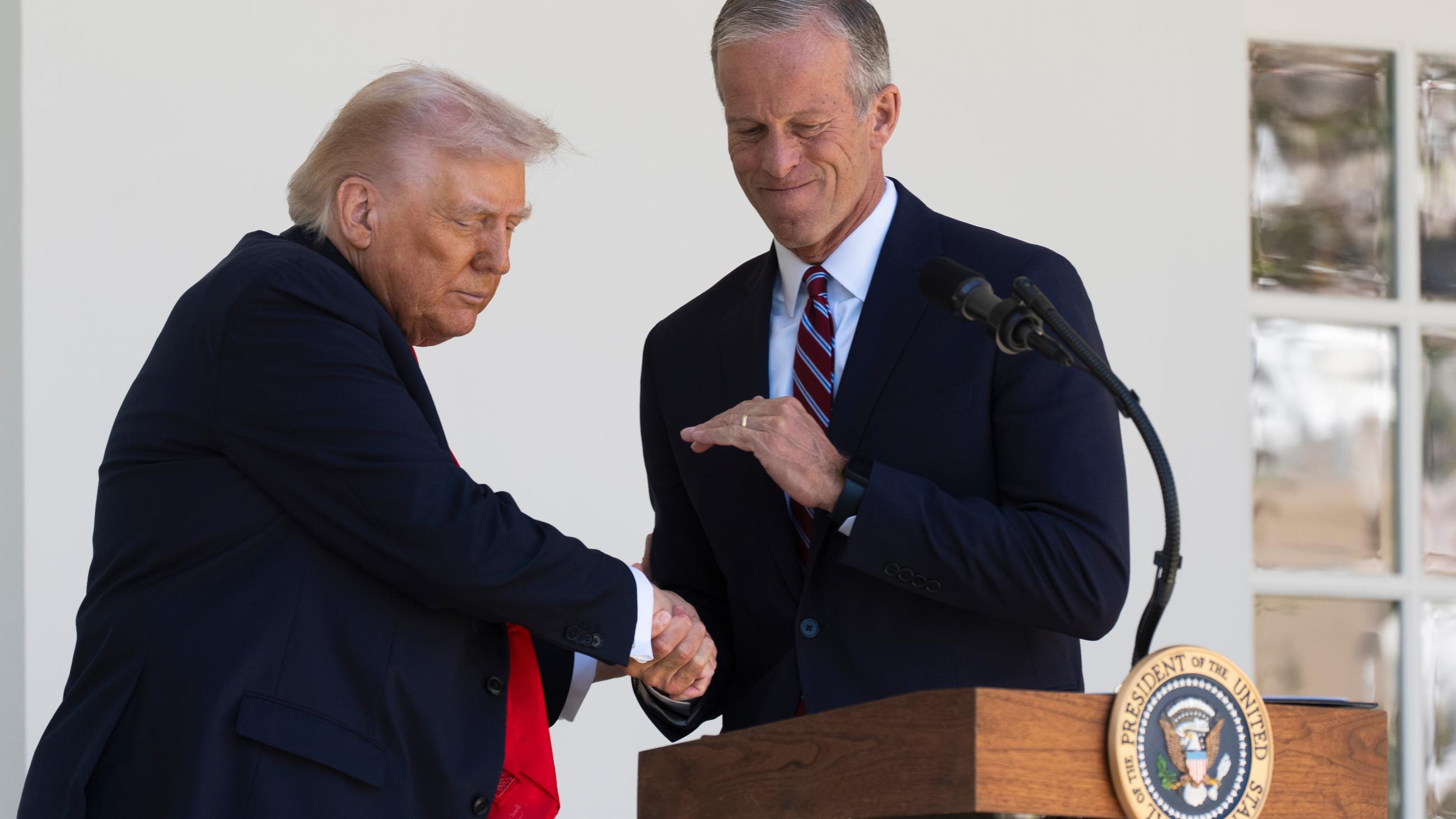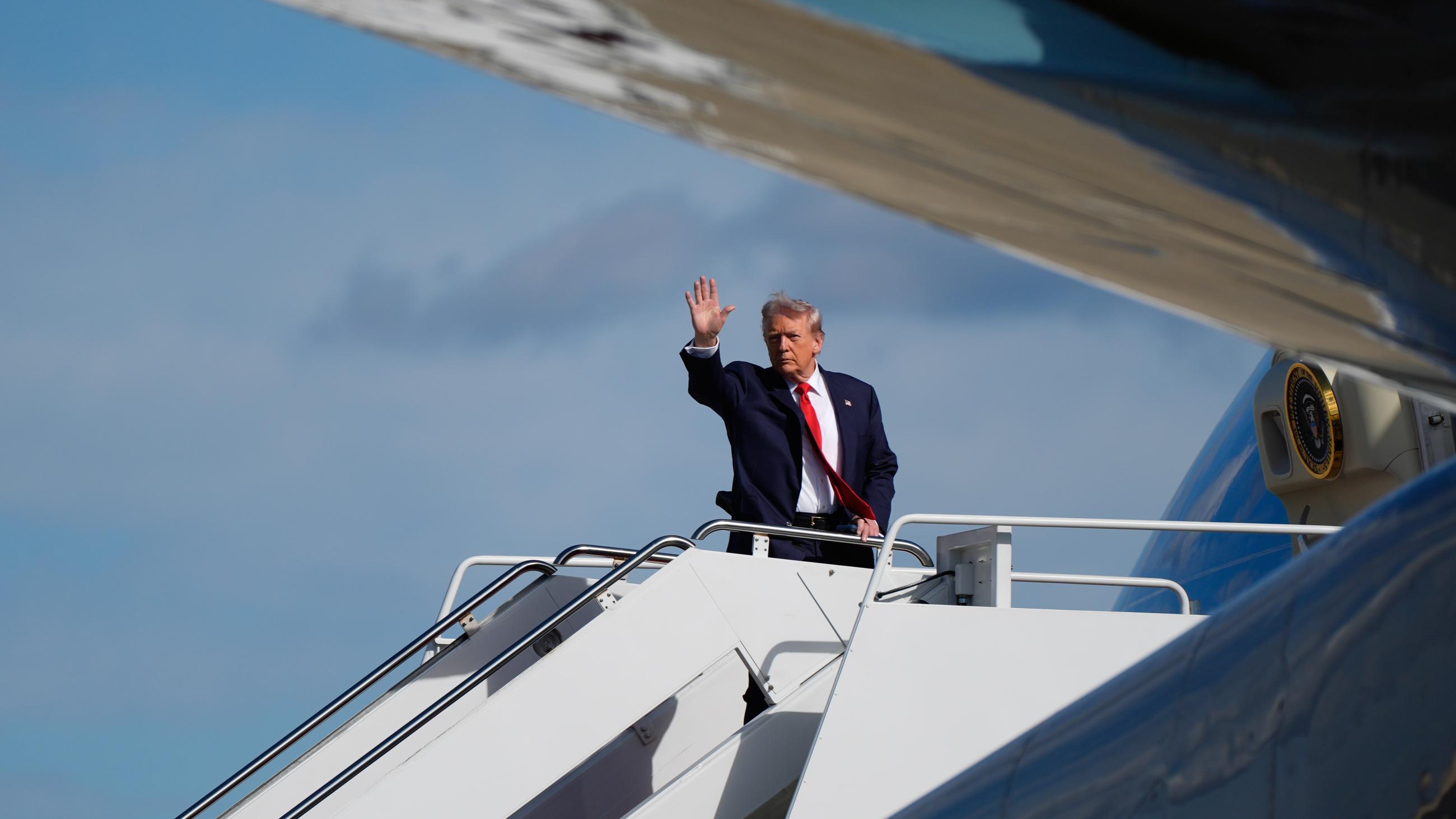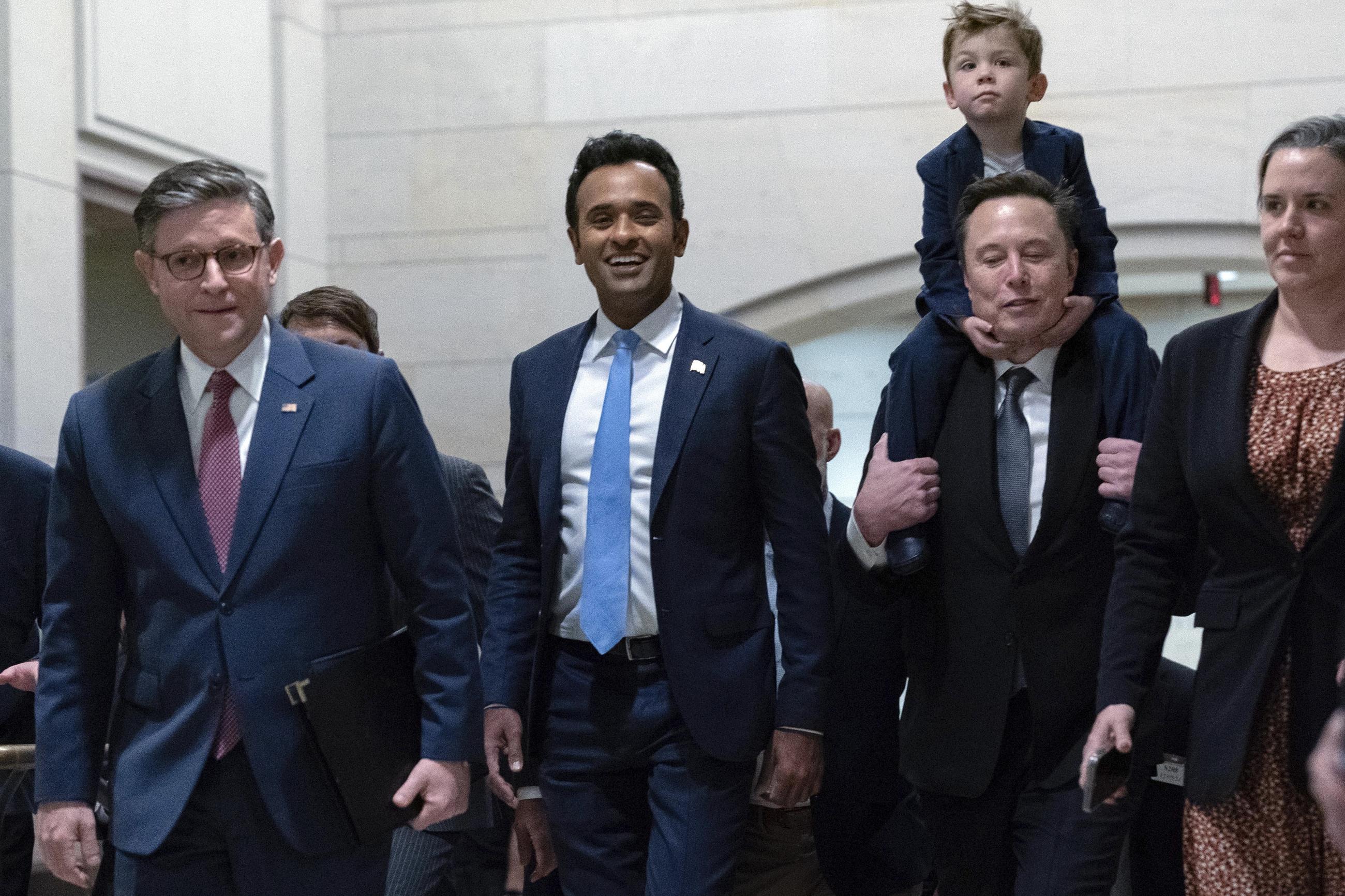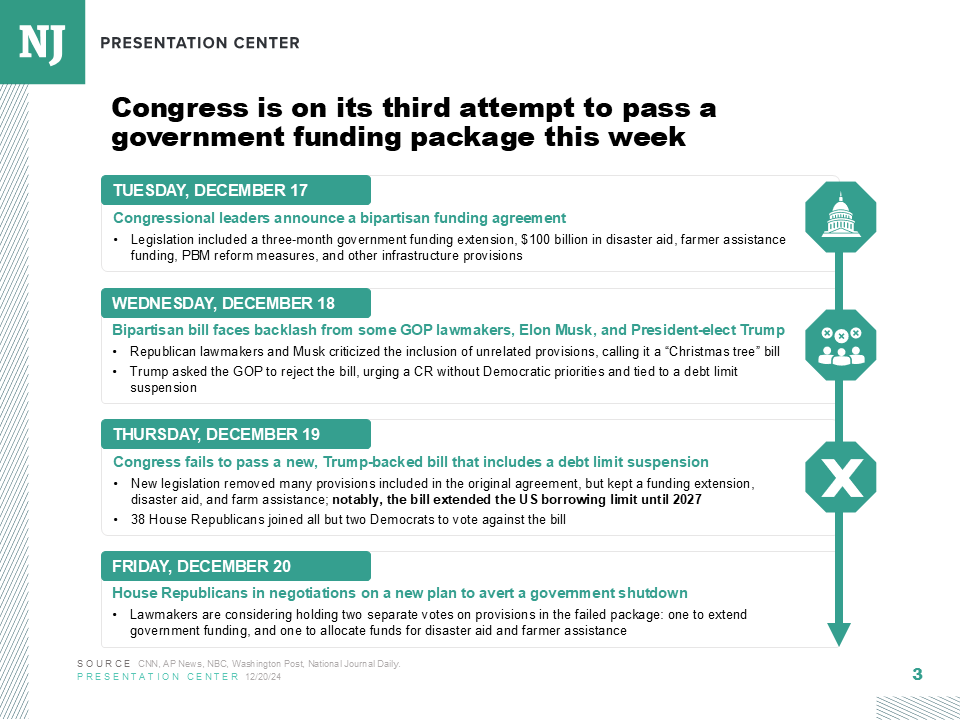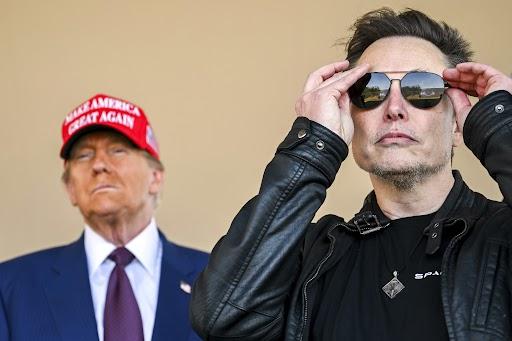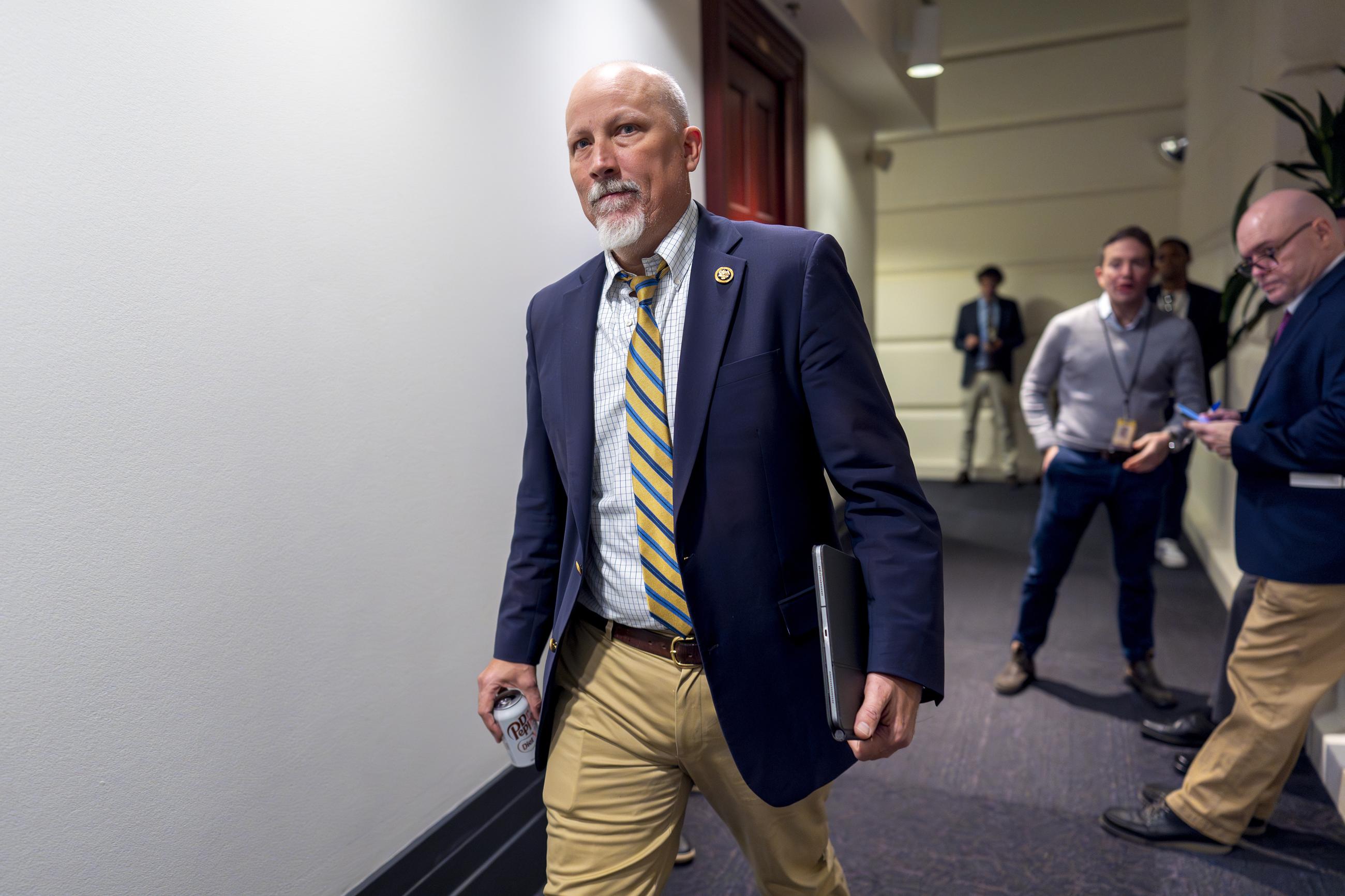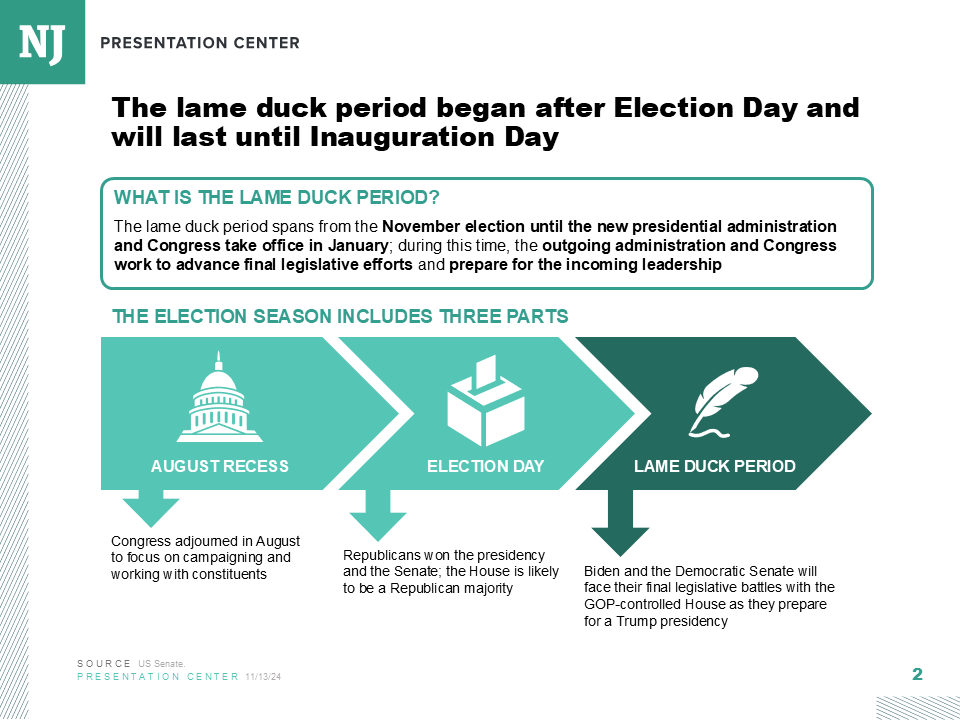Tuesday night’s election wins theoretically gave Democrats more leverage in their negotiations with Republicans to end the government shutdown, now the longest in history at 36 days. But even with the additional momentum, Senate Democrats are still not in agreement on an off-ramp to ending the shutdown—amid more aggressive calls from President Trump for Republicans to nuke the legislative filibuster and reopen the government.
A number of Democrats took a victory lap Wednesday, arguing that the election of new leaders in statewide and local races across the country was a referendum—and rebuff—on Republican governance, amid Trump’s tariff wars raising prices and a government shutdown during a GOP trifecta.
And it wasn't only Democrats making this acknowledgement. Trump said in a speech that the shutdown was a “big factor” in the elections, calling it “negative for the Republicans.”
“I don't think they're getting, really, the blame that they should,” Trump said before heading into the closed-door breakfast with Senate Republicans.
Trump wasn't the only Republican sharing that sentiment.
“Last night, if that wasn't a message to all Republicans, then we've got our head jammed in the ground,” Sen. Jim Justice said.
Tuesday night’s wins for Democrats, coupled with Trump’s acknowledgement that the shutdown is hurting Republicans more than Democrats, should give the minority party further ammo to argue that the president should come to the table to negotiate a deal. And yet Democrats remain divided on what their demands should be.
Republicans have floated a proposal that would allow for a standalone vote on extending enhanced premium tax credits under the Affordable Care Act, along with a package of appropriations bills, to pair along with a stopgap funding measure. But while it’s been reported that some Senate Democrats are warming to the idea of taking the offer, a number of them are calling for the party to hold strong.
When asked if the GOP proposal was a workable deal, Sen. Angela Alsobrooks was blunt: “Of course not.”
“We don't trust them, not for a moment,” the Maryland Democrat said. “The ‘I'll gladly pay you Tuesday for a hamburger today’ is not something we're willing to risk.”
Without assurances from the White House and the House that the proposal would pass and be signed into law, Democrats argue the vote would be nothing more than for show. Sen. Brian Schatz, a member of Democratic leadership, said he’s a "no" on the current GOP offer.
“I don't think we are at the point where that's a thing that they're going to file cloture on,” Schatz said. “I don’t think we’re there yet.”
Even with Democrats riding high on the election results, there doesn’t seem to be any further momentum. House Minority Leader Hakeem Jeffries said the caucus’s position “remains the same.”
And some Republicans were unmoved, suggesting Tuesday’s elections were not a harbinger of next year’s midterms but simply a matter of Democratic candidates winning in safely blue states.
“We didn't lose any red states, we didn't lose any states that [Trump] had won,” Sen. Markwayne Mullin said. “Republicans really weren't on the ballot. We were, but not in areas that we have a stronghold."
But Tuesday’s election results, and a shutdown that is straining air-traffic control nationwide and forcing food assistance to run dry, is getting under the president’s skin—so much so that he publicly advocated a move that most Republicans say is a red line they won’t cross: nuking the filibuster to end the shutdown.
“It’s time for Republicans to do what they have to do, and that’s terminate the filibuster,” the president said on Wednesday. “It's the only way you can do it. And if you don't terminate the filibuster, you'll be in bad shape.”
And his demands are starting to sway a small group of GOP lawmakers, albeit not enough to “go nuclear.”
A few Republicans are signaling they are open to nuking the legislative filibuster, which currently requires 60 votes rather than a simple majority for major pieces of legislation, including funding bills, to reach the floor. That includes a longtime institutionalist, Sen. John Cornyn, who’s up for reelection this year and courting Trump's endorsement.
“I think it bears some discussion,” the Texas Republican, who had pledged to “reject all attempts to nuke the legislative filibuster” in his pitch to become the next Senate GOP leader last year, said Wednesday. “I mean, we can't tolerate a situation where a willful minority can shut down the government anytime they want, and we've also had a nonexistent appropriations process for many years. So I'm open to considering whether we ought to make some changes in both of those areas.”
Cornyn cautioned, however, that the broader GOP conference is nowhere near having the 51 votes needed to change the rules of the upper chamber, despite the demands of the president.
“This is having a radicalizing effect on me when it comes to the filibuster, because if you’re telling me now I'm going to have to choose between people in my state eating or preserving the arcane rules in the Senate … I'm going to choose people in my state eating,” populist GOP Sen. Josh Hawley of Missouri said.
Mullin, one of Trump’s most ardent supporters, noted that while he’s not for ending the filibuster “right now,” if Democrats continue to hold out their votes on reopening the government, “they’re going to force us to do something.”
“But if we were to do it, I want it to be very limited—specifically towards a shutdown,” the Oklahoma Republican said.
Sen. Rick Scott, who previously said he doesn’t support getting rid of the filibuster, also has cracked open the door on the idea.
But Senate Republican leadership has stressed amid Trump’s calls that there aren’t enough votes to pursue the option.
In order to eliminate the filibuster, there are two options.
Changing the Senate rules, particularly Rule 22, would be the most straightforward method, but that would require a two-thirds supermajority—a seemingly impossible bar given Democrats’ unwillingness to help Trump. But, through the “nuclear option,” the Senate majority leader would use a non-debatable motion to bring a bill for a vote and then raise a point of order that cloture can be called with a simple majority. Earlier this year, Thune triggered the nuclear option to speed up confirmation of Trump’s nominees.
“It only takes third-grade math to figure out that if you've got 15 or more members that are dug in, it's not going to happen,” said Republican Sen. Thom Tillis, who’s set to retire at the end of his term.



